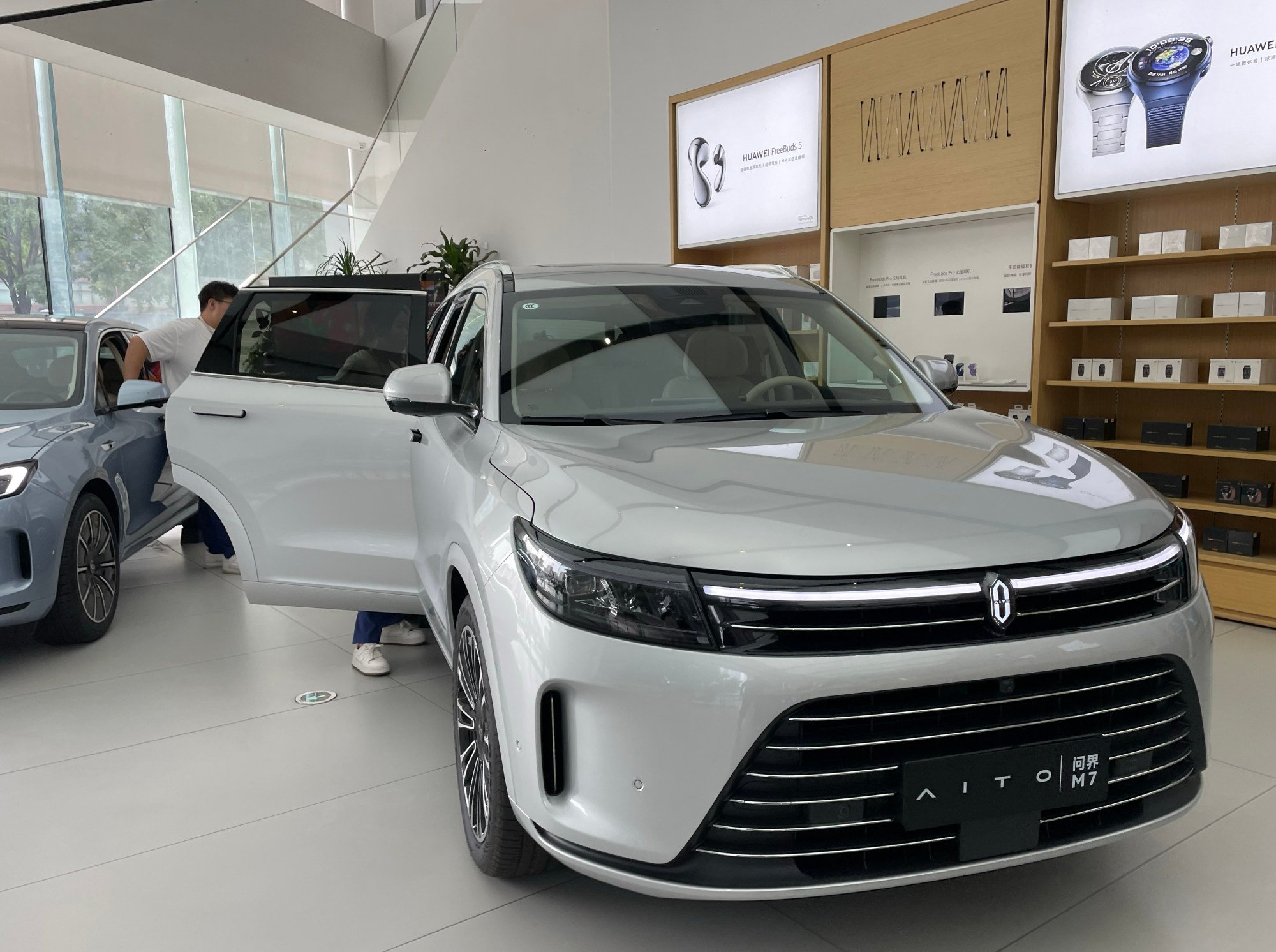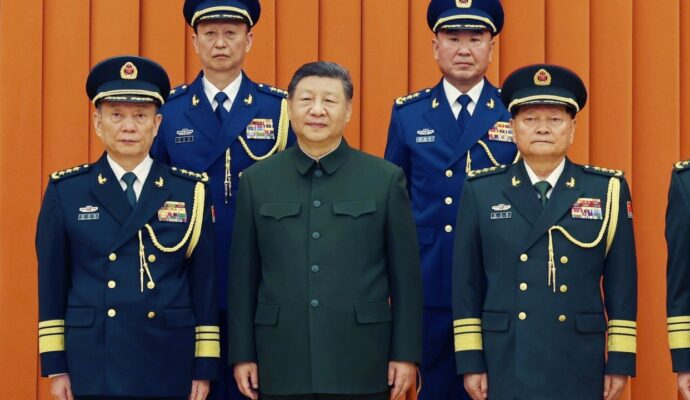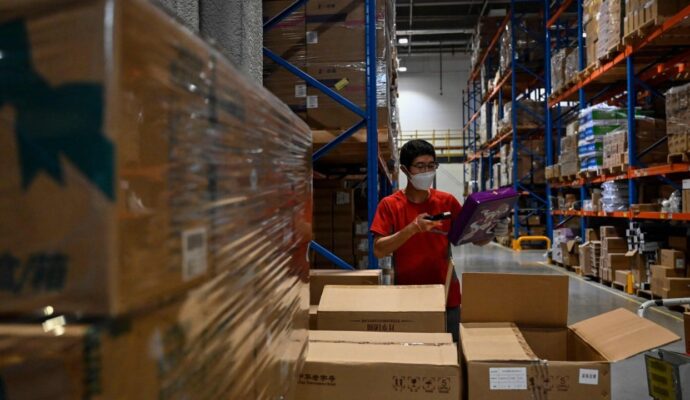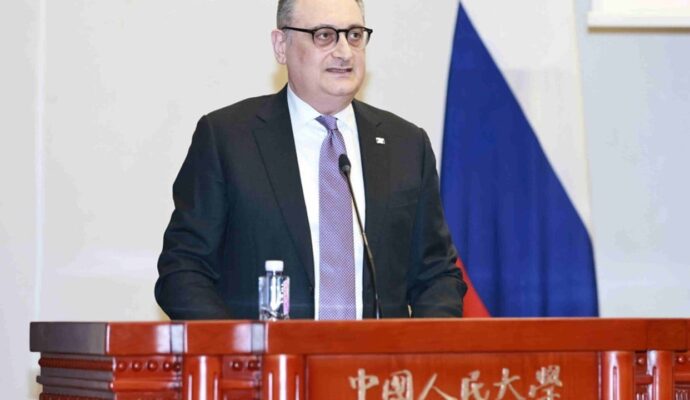“Russia’s war of aggression against Ukraine is endangering not only lives but also global food supplies,” Dombrovskis said.
EU trade chief Dombrovskis says bloc doesn’t intend to decouple from China
EU trade chief Dombrovskis says bloc doesn’t intend to decouple from China
Sitting alongside He in Beijing, Dombrovskis drew attention to the bloc’s near-€400 billion (US$426 billion) trade deficit with China and the concerns of European business representatives he met on Monday.
“We are concerned about imbalance in our relationships,” he said. “Addressing these concerns will help China to retain its capacity to attract and retain foreign investment and meet the objective of a sustainable, high quality economic growth.”
While concrete details have yet to be released of the talks between Dombrovskis and He offered snapshots of a narrow set of agreements reached during talks on Monday.
The pair agreed to an early-warning mechanism that would alert the EU when there are bottlenecks in the Chinese supply chain. They said they would maintain dialogue on export controls, with He also urging Dombrovskis to “cancel restrictions over its exports of hi-tech products to China”.
Brussels had pushed for Beijing to reopen its market to all meat, cosmetic and infant formula imports from all 27 EU member states.
He said it would “speed up the market access” for agricultural firms and send inspectors to Europe to check on baby powder production sites.

“This is causing real anxiety among European companies here in China as normal rules are making it very cumbersome to operate effectively,” said Dombrovskis.
While, the deliverables will not move the needle for businesses on either end, EU officials said before the talks they were convinced of the necessity of frank dialogue with Beijing.
Dombrovskis will meet the central bank governor Pan Gongsheng on Tuesday before flying back to Brussels. His team has promised to present more details on its economic security strategy by the end of the month – a policy better known by the shorthand, “de-risking”.
Earlier on Monday, Dombrovskis cautioned that EU-China relations were “at a crossroads”.
He has warned throughout the visit that Beijing must change its trade practices, while also making clear the EU has no intention of cutting ties with the world’s second largest economy.
In a speech at Tsinghua University in the Chinese capital, Dombrovskis said that while he “welcomes competition … [it] must be fair, and we will be more assertive in tackling unfairness”.
The trip comes amid an escalating feud over electric vehicles and other critical industries.
Europe believes China has heavily subsidised its domestic industry and that cheap models are now flooding the global market, threatening to bankrupt EU firms.
EU says up to 70% of hi-tech imports reaching Russia come via China
EU says up to 70% of hi-tech imports reaching Russia come via China
As well as EVs, Brussels faces a growing clamour to intervene to support businesses in the solar, wind and hi-tech battery sectors, each of which say they are struggling to compete with subsidised Chinese imports.
“We recognise that the world needs China, but China also needs to see that the lack of reciprocity and a level playing field from China, coupled with wider geopolitical shifts, has forced Europe to become more assertive,” Dombrovskis told an audience of about 80 people, mainly students.
He added that the EU would “remain narrow and focused in scope” on economic security, and not confuse it with “broader economic resilience or level-playing-field issues”.
“The EU needs a strong China to help the world succeed in green and digital transitions. But the EU cannot allow itself to be unprotected when our openness is abused and when our national security is at risk.”


